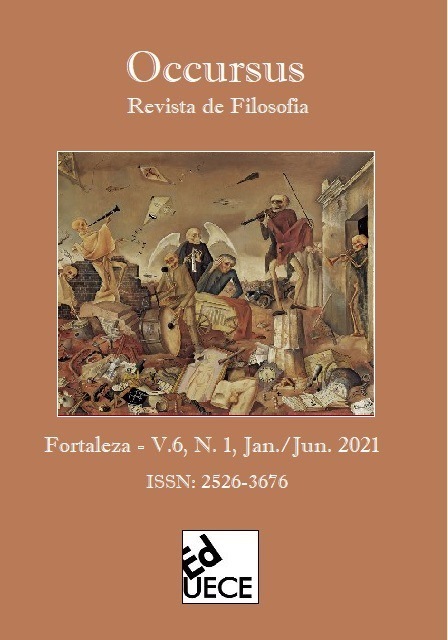Lolicons and the challenge of the ethical limits of fiction
Keywords:
Ethics. Philosophy of language. Law. Virtual pornography.Abstract
This article proposes a reflection on the limits of fiction taking as an example the fictional genre called “lolicon”, abbreviation for “lolita complex”, this name is directly influenced by the novel “Lolita” written by Vladmir Nabokov, which tells the story of an adult man who has sex with a child. As a background, this reflection will help us to examine the problem of the ethical limits of fiction in the most diverse forms of media, whether they are movies, novels, manga and games. In other words, we dispute, from a moral and ethical point of view, why fictions involving murder are accepted while fictional works involving sexual abuse against children are not accepted.
References
LEITÃO, M. & CASTELO-BRANCO R. Bebês: o irresistível poder da graciosidade. Um estudo sobre o significado evolutivo dos traços infantis. Estudos de Psicologia, 15(1), 71-78, 2010
LUCK M., The gamer’s dilemma: An analysis of the arguments for the moral distinction between virtual murder and virtual paedophilia, Ethics and Information Technology, March 2009
MINISTÉRIO DA MULHER, DA FAMÍLIA E DOS DIREITOS HUMANOS. Dados de violência sexual contra crianças e adolescentes. Disponível em: <https://www.gov.br/mdh/pt-br/assuntos/noticias/2020-2/maio/ministerio-divulga-dados-de-violencia-sexual-contra-criancas-e-adolescentes#:~:text=O%20suspeito%20é%20do%20sexo,em%2046%25%20das%20denúncias%20recebidas.> Acesso dia: 10/03/2021
MINISTRY OF FOREIGN AFFAIRS OF JAPAN. Japan’s Comments on the Draft Guidelines on the implementation of the Optional Protocol to the Convention on the Rights of the Child on the sale of children, child prostitution and child pornography, 2019. Disponível em: <https://www.ohchr.org/Documents/HRBodies/CRC/Guidelines/Japan.docx > Acesso dia: 10/03/2021
MOEN O. M. & STERRI A. B. Pedophilia and Computer-Generated Child Pornography. The Palgrave Handbook of Philosophy and Public Policy, 2018.
MOHNKE S, MÜLLER S, AMELUNG T, KRÜGER TH, PONSETI J, SCHIFFER B, WALTER M, BEIER KM, WALTER H, Brain alterations in paedophila: a critical review, 2014, US National Library of Medicine National Institutes of Health.
PATRIDGE S. L. Pornography, ethics, and video games. Ethics Inf Technol, 2013.
PRZYBYLSKI ANDREW K. & WEINSTEIN NETTA. Violent video game engagement is not associated with adolescents' aggressive behaviour: evidence from a registered report. 2019. Soc. open sci.6171474171474.
SAINSBURY R.M. Fiction and Fictionalism, Ed. Routledge, New York, 2010.
SEARLE J. R. Intencionalidade, Trad. Júlio Fischer, Tomas Rosa Bueno, Ed. Martins Fontes, São Paulo – SP, 2002.
SEARLE J. R. Expressão e Significado, Trad. Ana Cecilia G. A. de Camargo, Ana Luiza Marcondes Garcia, Ed. Martins Fontes, São Paulo – SP, 2002.
Takeuchi C. L. Regulating lolicon: toward japanese compliance with its international legal obligations to ban virtual child pornography, The Georgia Journal of International and Comparative Law Vol. 44:195.
UNITED NATIONS. DRAFT Guidelines on the implementation of the Optional Protocol to the Convention on the Rights of the Child on the sale of children, child prostitution and child pornography, 2019. Disponível em: <https://www.mofa.go.jp/files/000468434.pdf>, dia 12/11/2019.
Downloads
Published
How to Cite
Issue
Section
License
Copyright (c) 2024 Paulo Eduardo Paiva Ferreira

This work is licensed under a Creative Commons Attribution 4.0 International License.




